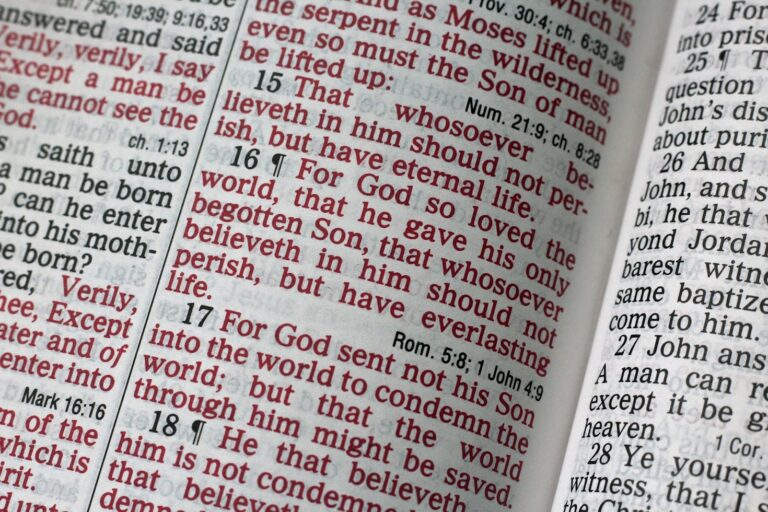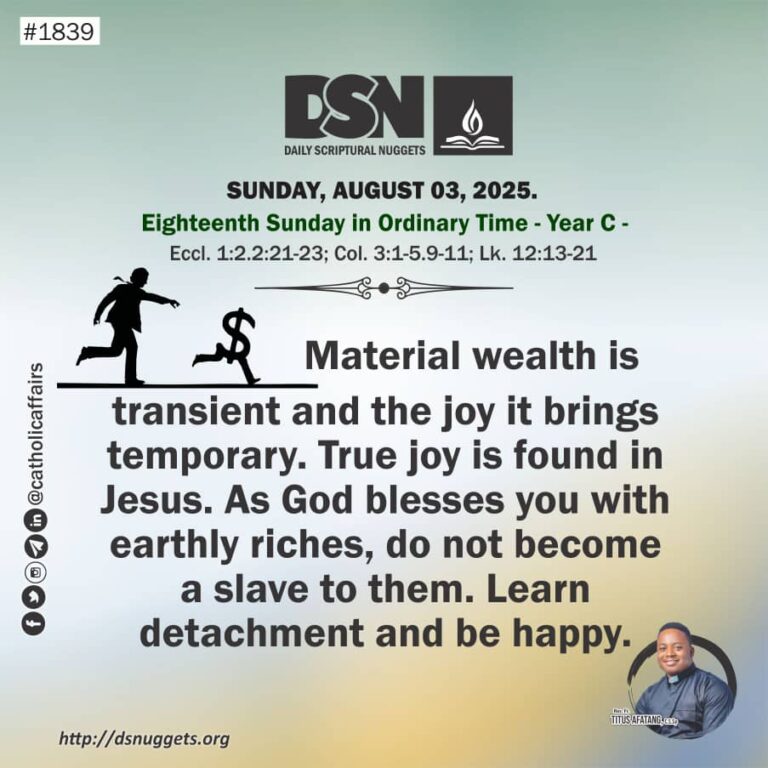Kardia – Go and Do Likewise
The longest journey a man will ever take is the one from his head to his heart.” — Anonymous
Introduction: We Nigerians are very smart—head-smart. We know how to survive in harsh conditions, decode people’s intentions, quote Scriptures when convenient, and make sharp market calculations even under pressure. We’re sharp upstairs. But the real question is not how sharp your head is. The real question—God’s question—is: how alive is your heart? Because, my dear people of God, the Gospel is not a matter of intelligence. It’s a matter of the heart. The Church Fathers would say: “Cor ad cor loquitur” – “Heart speaks to heart.” And that’s the only language God understands. Today, I want us to focus on this central theme: Kardia – the Greek word for heart. Not just the physical one beating in your chest, but the deep center of your person where you choose, desire, remember, love, and trust—or not. Let’s now walk through this Sunday’s message in five steps—each revealing how God is not far, and how holiness is possible.
1. God’s Law Is Close—Stop Searching, Start Living (Deut 30:10–14): “This commandment that I give you today is not too hard for you. It is not beyond your reach… The word is very near to you; it is in your mouth and in your heart (kardia) so you can do it.”
This is Moses speaking to the people of Israel—but it is also God speaking to us here in Onitsha.
We often excuse ourselves with language like: “Holiness is for priests and sisters.” “I’m not strong in prayer.” “My business doesn’t allow me time for spirituality.” “Father, I’m trying… but this Nigeria is hard.” Yes, life is hard. But God isn’t making it harder. He’s not asking you to fast for 40 days or become a monk in the desert. He’s asking you to listen. To choose what is right—starting from your heart. Moses says clearly: The law is not in heaven. It’s not across the ocean. It’s right here. Inside. In your kardia. You already know what to do: Speak truthfully. Forgive your spouse. Stop cheating your customers. Pay your staff fairly. Respect your parents. Refuse to be part of a lie. These are not advanced theology. These are everyday choices.
The most powerful spiritual act is not always in church—it is often in the market, home, or classroom, where your heart makes a choice. And Moses is saying today: You already know what to do—so do it.2. See with the Heart – Don’t Pass by (Luke 10:25–37): In the Gospel, a lawyer asks Jesus: “What must I do to inherit eternal life?” Jesus answers: Love God and love your neighbor. But then the lawyer looks for a loophole: “Who is my neighbor?” Jesus tells him the parable of the Good Samaritan. A man is robbed and beaten. A priest sees him—and walks away. A Levite sees him—and keeps going. These were religious men, respected in society.
Then comes the Samaritan—a foreigner, considered “unclean” by the Jews—and he stops. He does not look away. His kardia is moved. He touches the wound. He sacrifices his time. He spends his money. He risks his reputation. This story is not just about helping strangers. I t’s a warning: It is possible to be religious and still heartless. You can carry a Bible and still lack compassion. You can know theology and not know God. You can speak in tongues and still gossip cruelly. Your neighbor is not just someone you like. Your neighbor is anyone whose suffering is near your feet
Jericho roads:
- A housemaid constantly insulted by her boss.
- An elderly woman you’ve not visited in years.
- That classmate going through depression.
The Gospel says: Don’t just ask, “Who is my neighbor?” Ask: “Who needs me right now?” That’s where Jesus is pointing you.
3. Real Worship Begins in the Heart (Psalm 69:14–31; Matthew 15:8): The Psalmist says: “I am in pain and distress… but I will praise the name of God in song and glorify Him with thanksgiving.” (Ps 69:29–30) Here’s a man who worships not because everything is fine, but because his kardia is alive. David’s worship is not about ceremony—it’s about connection. But Jesus says in Matthew 15:8: “These people honor me with their lips, but their hearts are far from me.” Isn’t that many of us?
- We kneel during Mass, but refuse to greet our neighbors.
- We sing praises but curse at bus conductors.
- We say “God bless you” and then turn around and exploit someone weaker.
Friends, God doesn’t just want worship from your mouth. He wants worship from your heart. And when worship flows from the heart, it continues after Mass: In how you speak to your children. In how you forgive the person who hurt you. In how you show gratitude. In how you refuse to retaliate when insulted. Worship that ends at the church gate was never real to begin with.

4. Sow Seeds of Mercy – In Scripture and in Society: “Let love and faithfulness never leave you… write them on the tablet of your heart… then you will win favor and a good name in the sight of God and man.” (Prov 3:3–4) Scripture says: “Blessed are the merciful, they shall obtain mercy.” (Mt 5:7) Let’s break it down: Mercy is never wasted. It may not return immediately. It may not even return from the same person. But mercy always bears fruit.
- David and Mephibosheth (2 Sam 9): David sought out the crippled son of Jonathan—not for gain, but for love. That act outlived David.
- Esther and Mordecai (Esther 4:13): Mordecai reminded Esther: Your position is not a shield against responsibility. Use your influence to save others.
- The Woman Who Anointed Jesus (Matt 26:13): She didn’t preach. She didn’t argue. She simply poured out love. And Jesus said her act would be remembered wherever the Gospel is preached.
Everyday Examples:
- A schoolteacher who buys lunch for a hungry student—years later, that student becomes her greatest helper.
- A landlord who reduced house rent for a widow – without asking for “something more”.
- A man who sponsors the education of his driver’s child, only for that child to become a doctor who treats him for free later.
You may not reap where you sow. But you will always reap what you sow. Let people rise knowing you helped them. Your house, lands, and cars won’t remember you. But a wounded soul you lifted will never forget. And God will not forget either.
5. Christ, the Good Samaritan of Heaven (Col 1:15–20): St. Paul says: “Christ is the visible image of the invisible God… and through Him, all things are reconciled.” Jesus is the Good Samaritan from heaven.
– He found us half-dead in sin.
– He carried our wounds on the Cross.
– He paid our debt with His blood.
– He loved us when we had nothing to offer.
Now He says to us: “As I have loved you, so you must love one another.” (John 13:34)
Conclusion – The Call is Personal: “Go and Do Likewise”: The law is not far. The commandment is not hard. The example is not abstract. The neighbor is right beside you. So the real question today is not What do I know? It is: What am I doing with the mercy I’ve received? Jesus ends the Gospel not with a theory, but with a command: “Go and do likewise.”
Not think about it. Not pray on it. Go. Do. Love!!!
Let your heart be awake. Let your worship be real. Let your compassion be bold. And you’ll find that the God who seemed so far…has been living in your kardia all along.
✍🏽
Author
Reflection by Rev. Fr. Anthony Nduka, C.S.Sp – DSN Team, Nigeria
🌐
Draw strength for your day from the Word.
Visit https://dsnuggets.org
Fuel for the soul. Fresh every morning.



